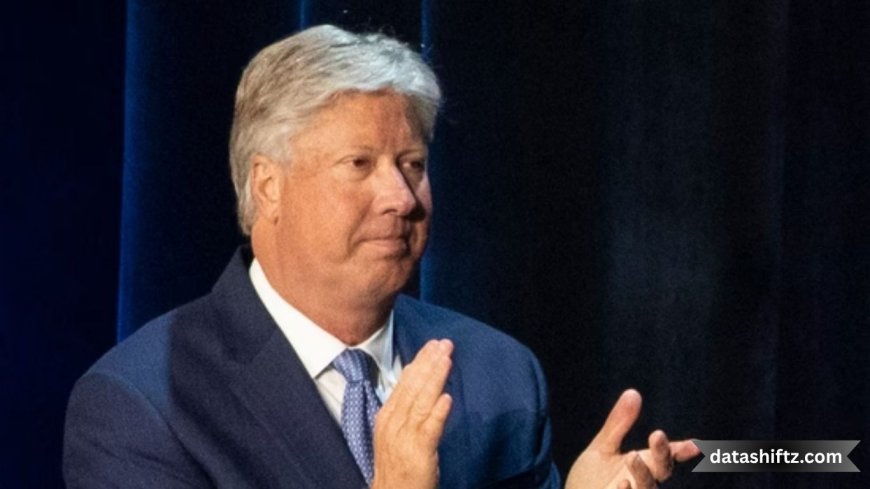Robert Morris: The Pastor, The Controversy, The Legacy

Who Is Robert Morris?
Robert Preston Morris (born July 29, 1961) is an American pastor, author, and televangelist best known as the founder and longtime senior pastor of Gateway Church in Texas.
He studied at East Texas Baptist College and Criswell Center for Biblical Studies. He and his wife Debbie married in 1980 and have three children.
In 2000, Robert Morris and his wife launched Gateway Church in Southlake, Texas. Over the years, Gateway became a multi-campus megachurch, drawing tens of thousands in weekly attendance.
Beyond the pulpit, Morris is a prolific author (books such as The Blessed Life, Dream to Destiny, The God I Never Knew) and he hosted radio and television ministries with global reach. He also served as chancellor of The King’s University (with which he worked from Gateway) until recent events.
Over time, Morris also increasingly entered into political and cultural conversations, aligning himself with conservative Christian causes and serving as a spiritual adviser to political figures.
However, his life and ministry have been deeply marred by grave allegations (discussed below).
Milestones and Controversies
Below is a table summarizing significant milestones and controversies in Robert Morris’s life and career.
Core Aspects of Morris’s Ministry and Influence
Here is a list of key features, characteristics, and impacts of Robert Morris’s ministry:
-
Growth & Scale of Gateway Church
Under Morris’s leadership, Gateway expanded to multiple campuses and had substantial weekly attendance figures. -
Media Reach and Publishing
Through books, television, and radio, Morris’s influence extended far beyond his local congregation. -
Financial & Institutional Structure
Gateway functions not just as a local church but as a large institutional body, with budgets, staff, and structural administration. -
Cultural & Political Engagement
Morris participated in political advisory roles, publicly weighed in on legislation, and connected with wider cultural debates. -
Controversy & Accountability Breakdown
The allegations of abuse, the timing of disclosure, the church’s internal processes, and the way authority was exercised have led to deep questions about accountability, power, and transparency. -
Legacy & Disillusionment
For many, Morris is now a cautionary tale—how spiritual leaders may fall, and how systems that elevate individuals can also fail to protect the vulnerable.
Reflection: Lessons and Questions Arising
Robert Morris’s story is rich with tensions. On one hand, you have a man who built a far-reaching ministry, wrote influential books, and molded a religious institution with national recognition. On the other, you have horrifying allegations that reveal deep abuse of power, betrayal of trust, and institutional failure.
What can we learn from this?
-
Power must have accountability. The larger a leader becomes, the more checks, transparency, and oversight are vital.
-
Victims’ voices must be heard early. The long delay before public reckoning suggests systemic barriers to justice and the suppression of complaints.
-
Charisma doesn't equate to moral integrity. Popularity, eloquence, and growth are not safeguards against abuse.
-
Institutions must prioritize safety over reputation. Too often organizations protect their image at the expense of individuals.
-
Healing must include restoration of justice. Forgiveness in faith traditions should not bypass the demands of justice or deny the reality of harm.
In the coming years, Morris’s case will be studied in seminary classrooms, in church governance workshops, and in the everyday hearts of believers wrestling with the implications of what has happened. The narrative of Robert Morris is not just about one pastor, but about how religious communities manage influence, trust, and moral responsibility in the face of scandal.
Conclusion
The rise and fall of Pastor Robert Morris is a sobering reminder of the immense responsibility that comes with spiritual leadership. Once admired for his dynamic preaching and the meteoric growth of Gateway Church, Morris’s legacy is now permanently marred by deeply disturbing revelations and criminal charges. His story highlights the dangers of unchecked authority, the need for robust accountability in religious institutions, and the devastating consequences when those safeguards fail.
For followers, leaders, and churches around the world, this moment presents a challenge: to reflect, repent, and rebuild in a way that puts truth, justice, and the safety of all—especially the vulnerable—at the center. Institutions must evolve from celebrity-driven models to ones that prioritize transparency, humility, and accountability.





























